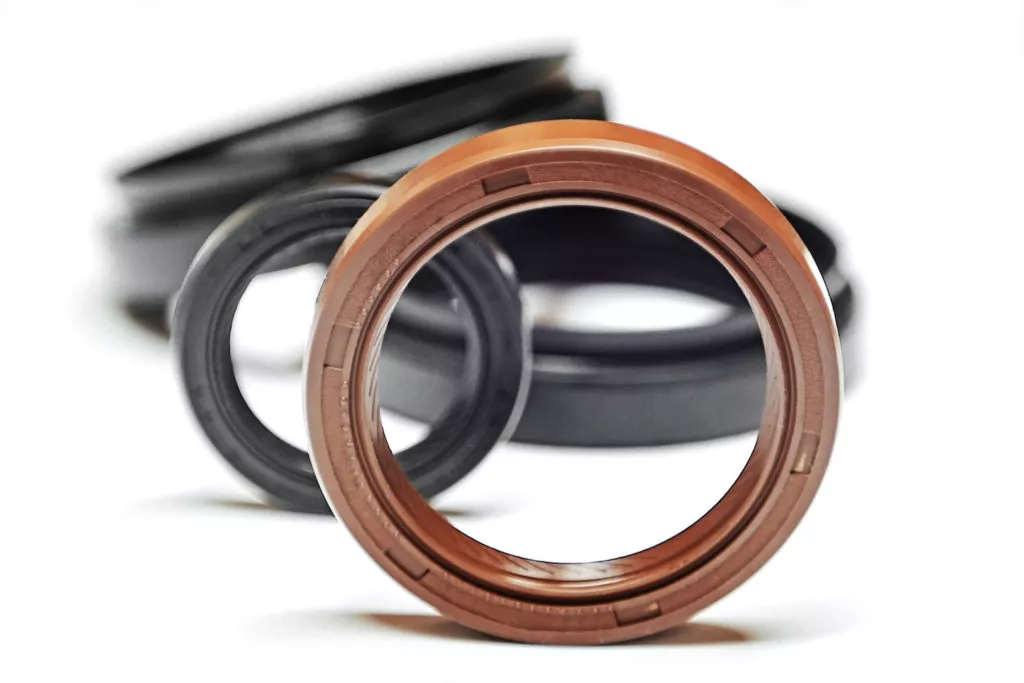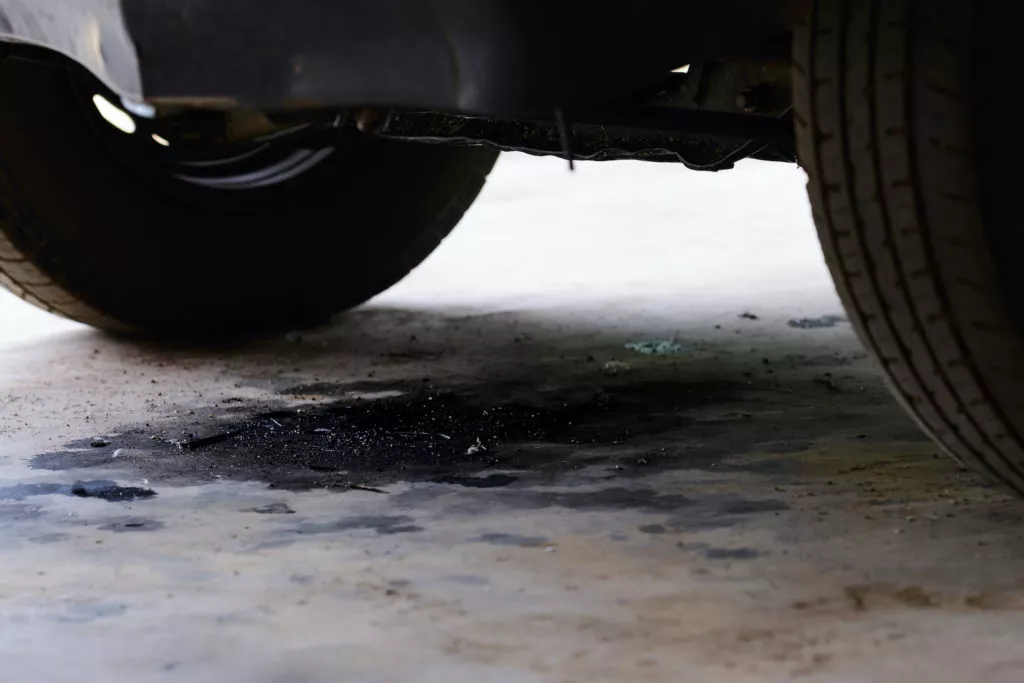In this article, we’ll discuss what causes a crankshaft seal to leak. The crankshaft seal is a small, but very important part of an engine.

It has the job of keeping the oil in and outside contaminants out. Without it, your engine will lose its lubrication and start to wear down quickly. But what causes this vital component to leak? The answer may surprise you!
The Crankshaft Seal
The crankshaft rotates inside the engine and converts linear motion into rotational force. The front of the engine features the crank pulley, which is mounted to the crankshaft. Likewise, a flywheel (or flexplate) is located on the rear side of it.
Oil leaks are prevented by two seals: one at the front of the engine and another at the rear, also known as a rear main seal.
What Causes a Crankshaft Seal to Leak
The seal has to be in constant contact with the housing it seals from. And since your engine is constantly rotating, there will be a certain amount of friction that causes wear over time.
The most common reason for a crankshaft to leak is wear and tear. If your car has already 100,000 miles, then there is a good chance that the seals around your crankshaft are nearing their “due date”. What causes a crankshaft seal to leak will also depend on the material it’s made of.
Some seals are softer and more sensitive than others, and therefore may wear quicker than usual.
There are 6 possible causes of crankshaft seal leakage:
Aside from wear and tear, there are numerous other reasons for your seals to leak. We’ll go over them below:
Wear and tear due to high mileage
As mentioned above, crankshaft seals are usually good for 100,000 miles or so. If you’re nearing that number on your car’s odometer and it’s time to replace the crankshaft seal- don’t wait! The manufacturer recommends a certain service interval. But replacing near this mark can extend its life significantly because of how hard it becomes after extended use.
The engine has too much oil on the inside
If you have an over-full engine, this is a problem. Too much oil will leak out of the crankshaft seal if there’s not enough space for it. The lack of lubricant in the engine will cause it to start wearing down quickly. And could create leaks elsewhere as well.
The seal was not installed properly
The crankshaft seal is a standard component. But it must be properly installed before you can take your car out on the road again. Improper installation can lead to leaks and shortages of oil in different spots around the engine, which will inhibit its ability to function properly.
A problem with the gasket
If there’s a problem with your crankcase gasket, oil can leak from within the crankcase and/or outside. Either way, the oil will be forced out by an external force.
The seal was damaged during a rebuild
A crankcase is difficult to remove from a car without causing some damage to any parts inside – especially large ones like the crankshaft seal. If it’s damaged when you take it out, then put it back in improperly. There’s little chance of avoiding leakage entirely.
There’s been a collision
If the seal has been compromised due to impact or other serious damage while driving, then it will leak. Eventually, stop working altogether. This could mean that you’re facing expensive repairs down the road.
Symptoms of a Bad or Failing Crankshaft Seal
The car’s engine will start to make a humming noise
One indication that you have a problem with the seal is a humming noise coming from the engine that won’t go away. Other possible symptoms include increased oil usage, black smoke coming out of the exhaust pipe, and an oil leak under the car that can cause damage to your driveway or garage floor.
Oil seeps out of the seal when it has been in contact with air
Oil leaks can stain your engine, tarnish your driveway, and turn your car into a jalopy.
If you see oil seeping from the crankcase seal and it’s been sitting with the engine off for at least a day, then chances are that there is some kind of damage present inside your car. The seal should not be allowed to dry out like this. Seek help immediately if you suspect anything fishy going on. It could lead to other problems in the long run.
You’ll notice oil leakage on your driveway, or worse, underneath your vehicle’s engine

A crankcase seal leak will create a steady puddle of oil under your car if there’s been any form of damage. This is almost always a sign that something needs to be replaced – and quickly. Do not drive the vehicle until this has been repaired, or you risk damaging other components on the engine.
You see oil seeping out in regular intervals
If you notice oil coming out steadily but sporadically (instead of all at once), then it could be an indication of problems with the timing chain system on your engine. It’s not necessarily as serious as a crankcase seal leak. But it can affect the functionality and overall quality of performance just the same. Get it checked ASAP!
There should be some kind of stain where the seal is located inside the car’s engine compartment
If the seal isn’t leaking oil on its own, then it may be absorbing oil from other parts of the car. If there is an oil smear in that area, you need to take your car to an auto repair shop as soon as possible for inspection.
The seal gives off an oily/greasy smell when it’s heated
When a crankcase seal starts to cool down after being used excessively, it will give off a “hot” odor that smells very much like hot metal. The scent might be recognizable if you know what you’re looking for. It will dissipate shortly after use. However, if you haven’t noticed any leaks around the engine before – then there’s no reason to be alarmed.
You’re also going to experience lower gas mileage and/or a loss of power in your vehicle
If the crankcase seal won’t hold pressure, then it is going to cause oil leakage when you start up your car. There will be nothing more than an oily residue left inside it after that, it goes on the engine. Your car is losing clean air by the minute once this has begun happening. Even worse, is the fact that you’re going to experience issues with gas mileage and overall power. Since there’s less fuel being burned for each mile traveled.
Conclusion
Crankcase seals are an important part of your engine and will fail over time. What causes a crankshaft seal to leak is usually wear and tear.
You can’t expect the seal to hold up for over 100,000 miles. showing some kind of sign of wear and tear. Eventually, it will fail. If you notice that your car is leaking oil excessively, either near the crankcase seal or throughout the engine, take it to a mechanic as soon as possible.
They will be able to pinpoint where the leak is coming from and fix it for you – or at least point you in the direction of someone who can do that kind of work for you.
To keep your car in shape. Don’t forget to do the basic car maintenance at recommended intervals.
